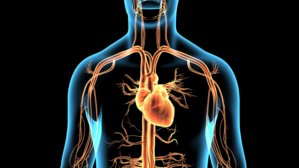Melatonin also protects against heart rhythm disturbances
 Melatonin is primarily known as a sleep hormone and a powerful antioxidant. According to a new study, melatonin may even improve the condition of rats that have heart rhythm disturbances with an increased risk of heart attack. Melatonin’s ability to improve the heart function is not related to its antioxidant function, however, and that surprised the scientists behind the study. The new study was presented at an annual meeting for the American Physiological Society (APS) in Orlando. Melatonin has several vital functions, but as we age our endogenous production decreases. Not only does this affect our quality of sleep, it also has a negative impact on the heart and the body’s cells.
Melatonin is primarily known as a sleep hormone and a powerful antioxidant. According to a new study, melatonin may even improve the condition of rats that have heart rhythm disturbances with an increased risk of heart attack. Melatonin’s ability to improve the heart function is not related to its antioxidant function, however, and that surprised the scientists behind the study. The new study was presented at an annual meeting for the American Physiological Society (APS) in Orlando. Melatonin has several vital functions, but as we age our endogenous production decreases. Not only does this affect our quality of sleep, it also has a negative impact on the heart and the body’s cells.
Heart rhythm disturbances (also known as arrhythmia) is treated with anti-arrhythmic medication. In earlier studies, melatonin has been shown to have anti-arrhythmic properties, which were believed to be linked to its antioxidant function and ability to neutralize free radicals. In the new study, the researchers looked at the mechanisms by which melatonin supplementation can reduce the risk of heart attacks in rats with arrhythmia. One group of rats was supplemented with 10 mg of melatonin daily for seven days (a very high dosage), while the other group got placebo. The scientists measured the electric activity in the rats’ hearts before, during, and after they had contracted the heart ailment. Also, the scientists measured levels of oxidative stress, which is an imbalance between free radicals and antioxidants.
What is arrhythmia?
|
Melatonin affects cellular receptors
Ventricular tachycardia (VT) and ventricular fibrillation (VF) are two types of dangerous, irregular electric activity in the heart that may cause a heart attack. It turned out the melatonin-treated rats had a lower rate of both types of arrhythmia (VT and VF). Also, a particular marker of antioxidant activity was elevated in the rats that got melatonin. However, no link was observed between the presence of oxidative stress and irregular electric activity in the heart.
In a previous study, researchers observed that by blocking melatonin-specific receptors in the cells one can disable melatonin’s anti-arrhythmic effect. In other words, melatonin loses its effects in the cells if there are no receptors to which melatonin can attach. This fact combined with the recent rat study leads the scientists to believe that melatonin has a direct effect on cells, which is positive for the heart rhythm, and that the effect has nothing to do with melatonin’s role as an antioxidant.
Melatonin is a shortcut to natural sleep and cell maintenance
We humans produce melatonin in our pineal gland in the center of the brain. However, as we grow older our endogenous melatonin production decreases, and that is one of the reasons why many older people sleep poorly. The reduced endogenous production of melatonin may even speed up the ageing process, which is because melatonin is a powerful antioxidant that protects our cells and has a number of other functions in the human body.
Melatonin taken as a supplement works like a natural sleeping pill by compensating for the body’s lack of the compound, regardless if the deficiency is caused by old age, jet-lag, daylight saving time (DST), light exposure, nightshift work or other factors that are known to affect the amount of melatonin that is released by the pineal gland.
A melatonin supplement “tricks” the body into believing that it is night, even if this is not the case. That way, melatonin can induce natural sleep, which is essential for our health and mental well-being. The good news is that there are other bonus effects of using the compound.
|
References
American Physiological Society. Melatonin´s heart protective effects not related to its antioxidant properties. ScienceDaily April 9, 2019
Pierpaoli Walter, Regelson William. The Melatonin Miracle. Simon and Schuster 1996
https://da.wikipedia.org/wiki/Arytmi
Search for more information...
- Created on .








